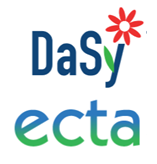
This provides an analysis of the FFY 2022 IDEA Child Outcomes highlights. The Individuals with Disabilities Education Act (IDEA) funds programs providing services designed to assist children with a range of delays and disabilities in achieving individualized developmental and functional goals. There are two types of programs. Part C Early Intervention is for children ages birth–2, and Part B Preschool is for children ages 3–5.
States report data annually to the Office of Special Education Programs (OSEP) in the U.S. Department of Education on three child outcomes for Part C and Part B Preschool programs:
- Social Relationships, which includes getting along with other children and relating well with adults
- Use of Knowledge and Skills, which refers to thinking, reasoning, problem-solving, and early literacy and math skills
- Taking Action to Meet Needs, which includes feeding, dressing, self-care, and following rules related to health and safety
Conclusion
For Part C Early Intervention, a comparison of national averages from FFY 2021 to FFY 2022 showed that outcomes were largely unchanged. The only change was a decrease of one percentage point in children exiting at age expectation in social relationships.
For Part B Preschool, there was no change in the percentage of children making greater than expected progress in Action to Meet Needs and an increase in Social Relationships and Knowledge and Skills. There was a relatively large decrease in the percentage of children exiting at age expectation for all three outcomes.
State Part C and Part B Preschool annual performance reports provided key reasons for declines, including impacts of COVID-19, other data quality issues, and changes to state data collection methods. Further analyses, particularly at the state and local level, are needed to understand trends.
Child Outcomes Highlights FFY 2022
Child Outcomes Highlights FFY 2022, plus archives of prior years
Published April 2025.


